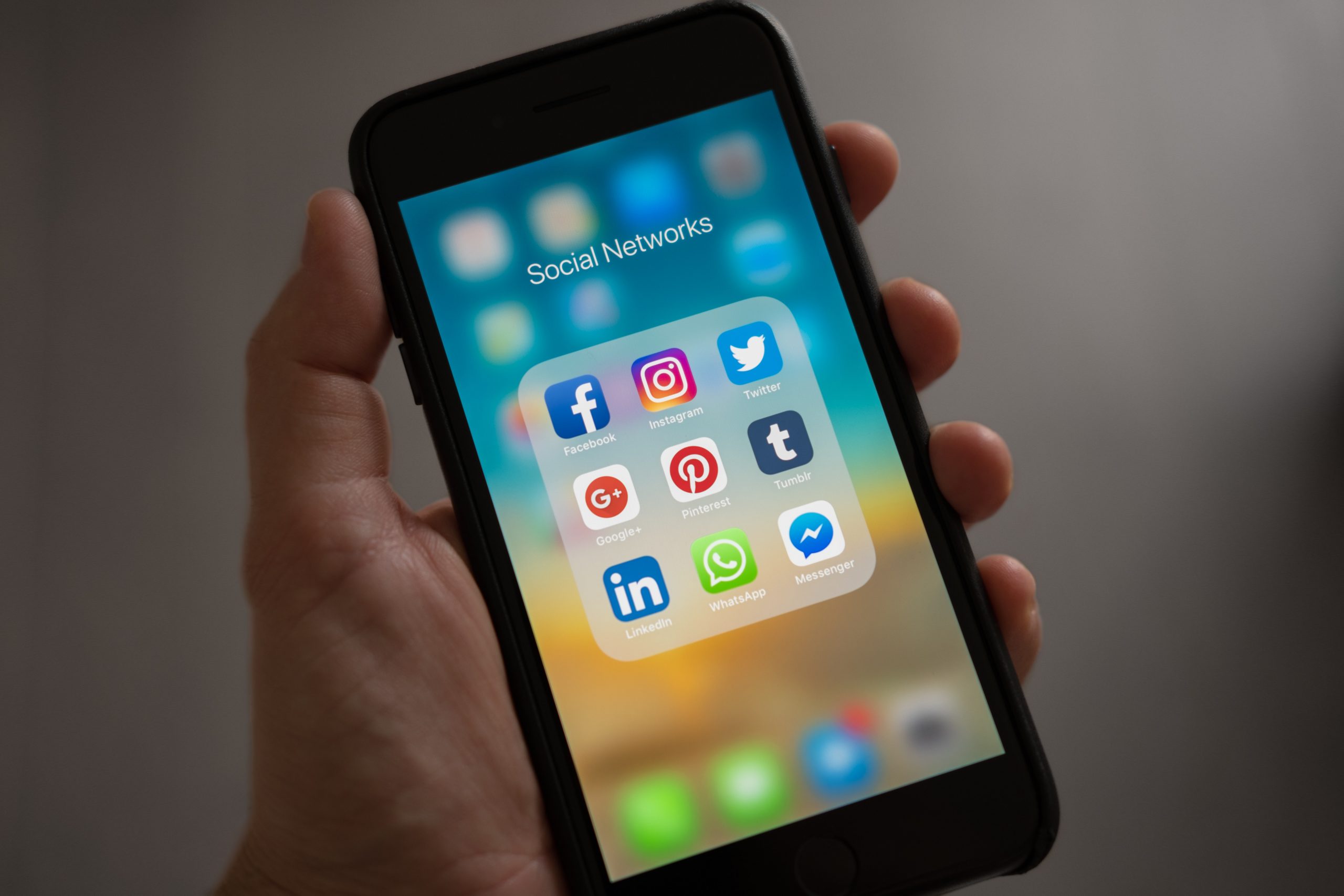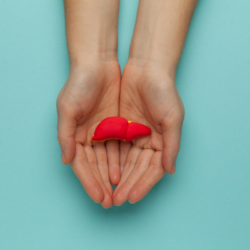Websites, social media and mobile applications, time spent online, favourite online activities… This summer, opt for a digital detox and free yourself from your most cherished ally, the smartphone! The result will be good for your health, your relationship and your everyday holiday life. In a world where the majority of French people are constantly connected to their smartphones, spending hours every day online, the need for a digital detox is becoming urgent. Increased use of screens, exacerbated by recent confinements, is having an undeniable impact on our mental and physical health, as well as on our interpersonal relationships. This article looks at the urgent need to disconnect in order to reconnect with ourselves and the real world. We will explore the effects of digital overload, the consequences for our well-being, and suggest practical and natural solutions, such as homeopathy, to support this essential disconnection. Find out how a break from screens could be the secret to a calmer, more balanced summer.
Detox from digital addiction
It may sound like a trite phrase, but 95.7% of French people own a smartphone. French internet users spend an average of 5 hours 37 minutes a day surfing the web, including 1 hour 41 minutes on social networks. The Covid crisis has demonstrated the French people’s enthusiasm for social networking, with an increase in traffic of 40%.
Disconnect to better reconnect!
Why not forget your phone and tablet for a while this summer? For optimum relaxation, switch them off and enjoy your holidays 100%. Enjoy your peaceful world away from it all, calm and serene. Close your eyes, breathe, give yourself a break and put your hyper-connected life on hold.
Not only do screens prevent you from concentrating at work, they can also get in the way of moments of relaxation. The temptation to glance at notifications or post a photo of the view on the beach is great, and here we are, hooked on the screen, without enjoying the present moment. There’s only one solution: turn your phone off!
The first few hours may be tough, but the benefits are worth it.
Why consider a digital detox?
In an age where technology reigns supreme, the idea of a digital detox may seem counter-intuitive. However, the damaging effects of digital overload on our mental and physical health are becoming increasingly apparent, justifying a thoughtful break from our connected devices.
1. Effects of digital overwork :
Digital burnout occurs when excessive use of electronic devices leads to a feeling of exhaustion. This is often the result of information overload and constant stimulation. Faced with an endless stream of notifications and updates, our brains struggle to rest, leading to mental fatigue and reduced concentration.
2. Impact on mental health :
Mental health is profoundly affected by excessive use of technology. Studies have shown that it can increase feelings of anxiety and depression, particularly in young people. The constant need to compare oneself to others on social networks, and the pressure to respond immediately to messages, can create chronic stress, damaging mental balance.
3. Effects on sleep quality:
Prolonged exposure to screens, particularly before bedtime, can disrupt sleep cycles. The blue light emitted by screens inhibits the production of melatonin, the hormone responsible for regulating sleep, leading to difficulty falling asleep and poorer quality sleep.
4. Physical consequences:
As well as the psychological impact, digital overwork can have physical consequences. Prolonged posture in front of a screen can lead to musculoskeletal disorders, particularly in the neck and back. In addition, the increased sedentary lifestyle associated with intensive use of digital devices contributes to health problems such as obesity and cardiovascular disease.
5. Reduced face-to-face social interaction:
Excessive use of digital devices can also lead to social isolation. Although technology facilitates long-distance communication, it can reduce the quality and frequency of face-to-face social interaction, which is essential for our emotional well-being and social development.
In short, a digital detox is not only beneficial, but often necessary to counteract the effects of digital overwork. By becoming aware of the impact of our digital usage on our mental and physical health, we can take steps to restore our general well-being.
Harmful digital influences: NTP study and young people’s text neck
Free yourself from all those waves for your health. A major new American toxicological study, developed as part of the NTP (National Toxicology Program), has added fuel to the fire of those who advocate greater precaution. According to the initial results of this work, published online by American researchers on 27 May 2019, rats exposed in utero and over the following two years to 900 MHz radio frequencies, modulated according to two mobile telephony standards, GSM and CDMA, were more likely to develop a cancerous tumour.
Clearly, the effect of mobile phone waves on health is harmful. Other studies have shown the influence of increased telephone use on male fertility. And young adults the world over are at risk of suffering from “text neck”, a sort of torticollis that affects screen addicts whose eyes, back, head and shoulders are hunched over their smartphone or tablet. Not to mention the constant reference to the self-image that sometimes increases narcissism. Networks can be quite harmful to the brain. There is clear evidence of a link between mental health and time spent on social networking sites.
Detox from nomophobia and fomo
For many people, forgetting their mobile phone is a pet peeve. So accustomed are we to having this little object with us at all times that the very idea of parting with it makes us shudder. This phenomenon is called nomophobia, a contraction of the expression “No mobile phobia”.
Nomophobia is also associated with FOMO (Fear of Missing out). This expression refers to the anxiety of being disconnected, of missing events, conversations or videos that take place on social networks or YouTube, for example, and that provide an opportunity for social interaction. And when you consider, according to the study, that young people aged between 16 and 28 send an average of 109 messages and/or publications per day and more than 3,200 per month, this obsession with constant connection doesn’t really seem set to end.
These two disorders are linked to the fear of losing one’s mobile phone, of no longer having it to hand, or of missing out on important information. If this idea frightens you, don’t hesitate any longer and force yourself to carry out your digital detox..
In short, have you been dreaming of getting away from it all this summer? Don’t wait any longer, switch off your mobile and make the effort of a digital detox to reconnect with the present moment and the things that are essential to your life and your health!
Human beings need real social links, not artificial ones.
Does the light from my phone screen age my skin?
Blue light, also known as HEV (High Visible Energy) light, emitted by the screens of our digital devices, has a significant impact on our skin. Although research is still ongoing, several studies have begun to reveal the potentially harmful effects of this exposure on skin health.
Accelerated skin ageing :
Blue light penetrates deeper into the skin than UVB and UVA rays, reaching the layers of the dermis where collagen and elastin are located. Its ability to induce oxidative stress can lead to a more rapid breakdown of these essential components, accelerating the skin ageing process, characterised by the appearance of wrinkles and loss of elasticity.
Hyperpigmentation :
Studies have shown that prolonged exposure to blue light can cause changes in pigmentation, leading to dark spots or hyperpigmentation. This is particularly noticeable in people with darker skin, in whom blue light can trigger a more pronounced melanogenic reaction.
Potential risk of DNA damage:
Although research is still limited, there are concerns about the ability of blue light to cause damage to the DNA of skin cells. This damage may contribute to long-term effects on skin health, potentially including an increased risk of certain skin conditions.
Disruption of the skin barrier :
Blue light can also affect the skin’s barrier function, reducing hydration and increasing sensitivity. This can lead to drier, more irritable skin that is less able to protect itself against external aggressors.
In response to these effects, it is advisable to limit exposure to screens, and to use protective creams specifically formulated to defend the skin against blue light. These measures can help preserve the health and appearance of the skin in the face of our omnipresent digital environment. Hence the importance of a digital detox to keep your skin healthy!
Managing the anxiety of disconnection
Disconnection anxiety, often fuelled by the fear of missing something important (FOMO, Fear Of Missing Out), represents a major challenge for those undertaking a digital detox. This part of the article looks at concrete strategies for overcoming this apprehension.
1. Recognising and accepting anxiety:
The first step in managing disconnection anxiety is to recognise and accept it as a normal reaction to a change of habit. Understanding that this fear is often unfounded and exacerbated by our own perceptions can help put the importance of what we think we’re missing into perspective.
2. Focus on the present benefits:
Focus on the immediate benefits of disconnection, such as peace of mind, improved concentration and better sleep. By focusing on these benefits, the lure of constant notifications and updates will fade.
3. Create rituals for disconnection:
Establishing rituals can ease the transition to screen-free periods. For example, establishing an evening ritual without electronic devices or starting the day with a relaxing activity helps to reduce anxiety.
4. Develop mindfulness:
Meditation and mindfulness are excellent tools for managing anxiety. They help to refocus attention on the present moment and reduce the impact of negative thoughts linked to disconnection.
5. Engage in compensatory activities:
Replacing time spent online with rewarding activities can help overcome the fear of missing out. Whether it’s reading, sport or creative hobbies, these activities provide a sense of achievement and well-being.
6. Communicate your intentions:
Informing those around you of your digital detox can not only provide support, but also reduce the anxiety associated with the idea of not being available. Knowing that those close to you understand and respect your choice can go a long way towards relieving social pressure.
7. Reassess digital habits:
Take advantage of this period to reflect on your digital habits. Asking yourself questions about the real value of the information and interactions you consume on a daily basis helps to put the fear of missing out on something important into perspective.
8. Set clear limits for reintegration:
When you decide to reconnect, do so with clear, considered limits. Setting time slots for checking your devices and sticking to them will help reduce anxiety and prevent old habits returning.
By applying these tips, managing the anxiety associated with disconnection becomes easier, allowing you to reap the full benefits of a digital detox.
Homeopathy to accompany digital detox
As part of a digital detox, various symptoms may arise as a result of the change in habits linked to the use of digital devices. Homeopathy offers a number of remedies to support this transition, specifically targeting symptoms such as stress, anxiety, sleep problems, irritability and difficulty concentrating.
| Symptoms | Homeopathic remedy | Use |
|---|---|---|
| Stress and anxiety | Ignatia Amara | Managing emotional stress linked to detoxification |
| Panic and intense fear | Aconitum Napellus | Soothes sudden reactions of anxiety |
| Difficulty falling asleep | Coffea Cruda | Helps you fall asleep and relax your mind |
| Sleep disturbances | Nux Vomica | Normalises affected sleep cycles |
| Irritability and agitation | Chamomilla | Reduces irritability and promotes calmness |
| Frustration and anger | Staphysagria | To manage frustration and anger |
| Concentration and mental clarity | Bacopa Monnieri (Brahmi) | Improves concentration and mental clarity |
These homeopathic remedies, in addition to behavioural and stress management strategies, can provide holistic support in the process of reducing or stopping excessive use of digital devices. They represent a natural approach to facilitating the transition to a more balanced lifestyle, free from the constraints and negative effects of digital dependency.
Source:
- Covid-19 Kantar Barometer 30 countries March 2020
- Wearesocial-digital-2021-france
- Europe1-sante: why it’s important to limit your use of social networks
- Kesari KK, Agarwal A (2018) Radiation and male fertility





